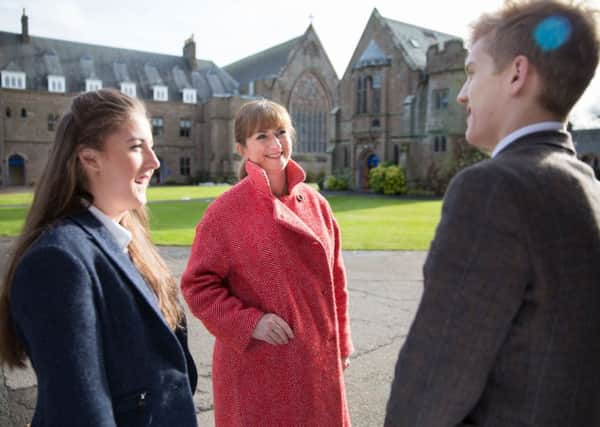Elaine Logan: Pastoral care is no longer an optional extra


The idea that every single pupil should be entitled to individual care was not common practice and those of us who believed that the wellbeing of young people was central to their academic success were seen, by some in the profession, as lily-livered liberals.
Thankfully with the Children (Scotland) Act of 1995 and a more enlightened mindset in educational quarters, the experience of pupils within schools has improved and, in the vast majority of cases, pupils’ health and wellbeing is firmly at the centre of their education.
Advertisement
Hide AdAdvertisement
Hide AdIf children are not nurtured and cared for they will not be as likely to reach their academic potential. All teachers should have pastoral care at the centre of their practice, as it is only by walking alongside our charges and understanding their worlds that we can begin to tap into what will engage youngsters in learning.
It is not about the facts we know, or the depth of our intellectual capacity, but about how we communicate and inspire those in our classes.
Taking the child as the centre of any classroom situation and believing their stories is the beginning. Children behave badly for a reason; they become depressed for a reason and it is the job of the teaching profession to uncover what gets in the way of learning.
Parents are of course the first line in caring for their children but, as teachers, we have a vital role to play, particularly in a residential environment.
This is not to say that teachers need to be amateur psychologists, but they do need to show empathy and integrity in their classrooms. Children very quickly see through adults who are not authentic. Everything we do in schools should be about its positive impact on children. The vocabulary that teachers use can nurture or destroy confidence: homophobic, sexist or racist attitudes can very easily be perpetuated in subtle ways by the words that are used in the classroom.
Over the years, I have advocated strongly for specialist pastoral care teachers to be trained in counselling skills and pupil support.
All staff now have mandatory Child Protection Training and all schools should have a designated manager responsible for pastoral care. There is now far greater accountability of staff due to rigorous appraisal systems and on-going Continuing Professional Development in areas connected with “wellbeing”.
Young people are, however, under more pressures than ever before. The internet and social media give them insights to worlds that were out of reach in the 70s and 80s. Adolescence can be a high- risk time. Depressive illness in teenagers is on the rise and it is more important than ever to develop a teaching profession that has the skills to put children’s wellbeing first – these young people will be the leaders of the future.
Elaine Logan MA, PGCE, PGC Counselling, PGC Pupil Support, is Warden (Head Teacher) at Glenalmond College in Perth. MA, PGCE, PGC Counselling, PGC Pupil Support